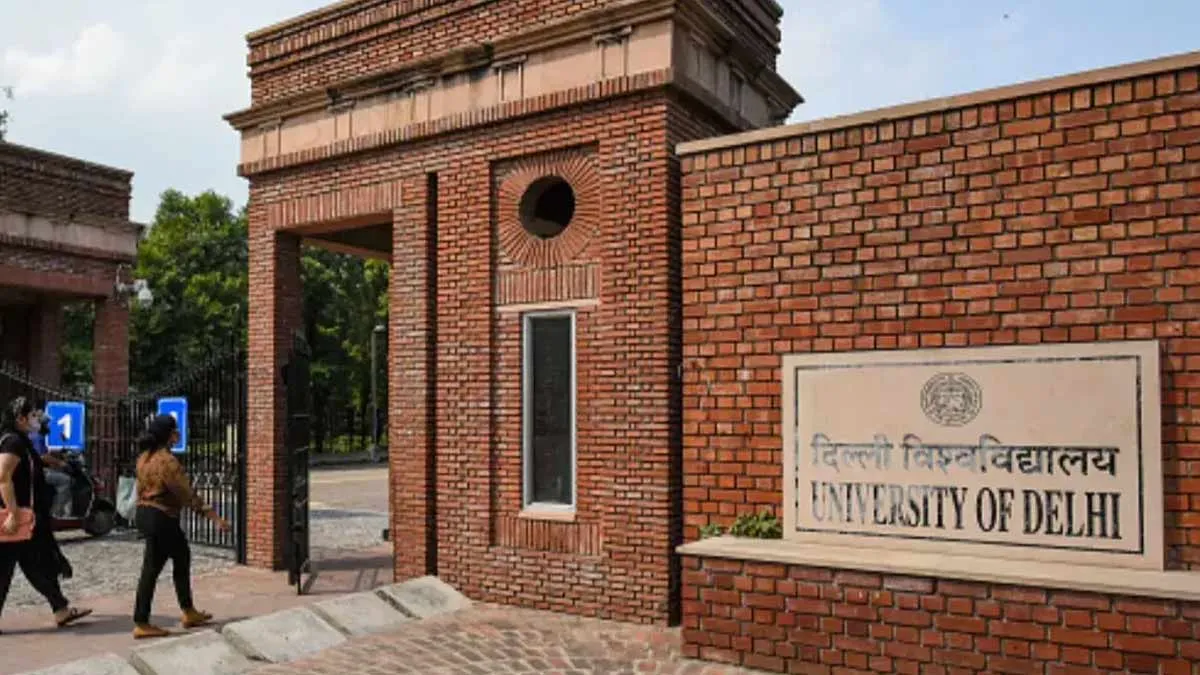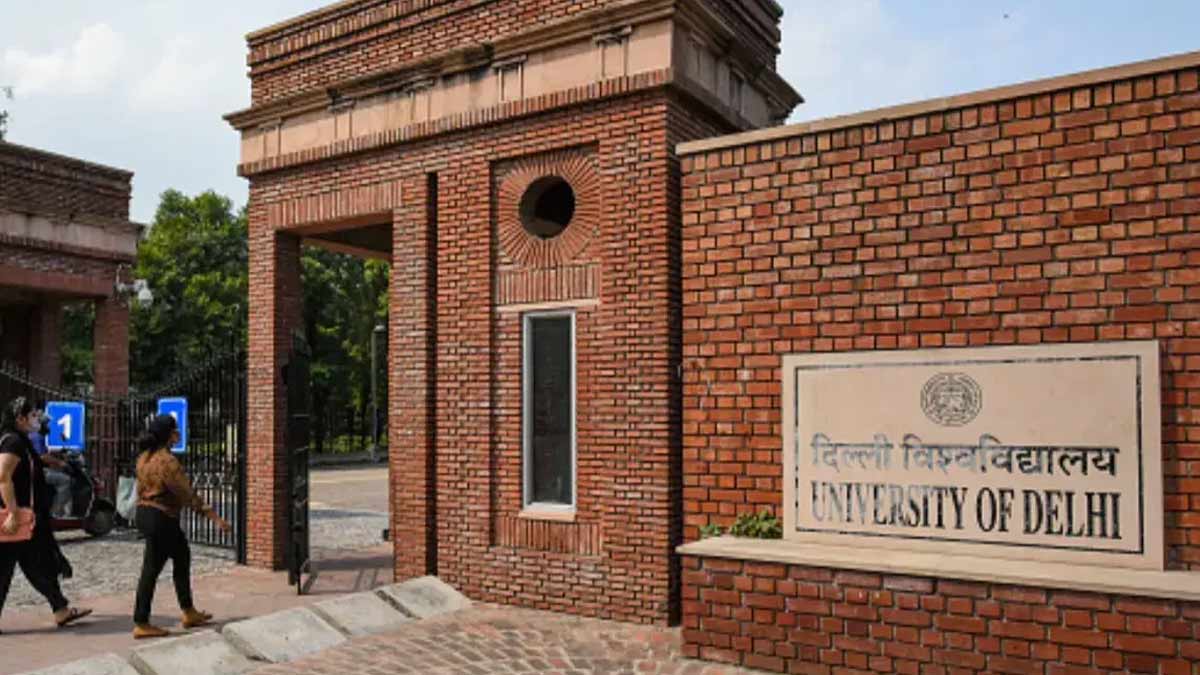
In the face of an escalating air pollution crisis, the University of Delhi (DU) announced on Monday that all physical classes would be suspended, with instruction shifting online due to the deteriorating air quality in the Delhi-NCR region. The decision comes as part of efforts to protect students from the harmful effects of the hazardous air pollution levels gripping the national capital.
Table of Content:-
Delhi University Takes Action Amid Toxic Air
The University of Delhi’s management issued an official statement confirming that all in-person classes would be held online until Saturday, 23rd November 2024. The university attributed this move to the severe air pollution and the dangerous rise in the Air Quality Index (AQI), which has reached alarming levels across Delhi and its surrounding areas.
"In the larger interest of students, it has been decided that the classes shall be conducted in Online Mode till Saturday, 23rd November, 2024," the statement read. This shift to virtual learning aligns with the city's ongoing efforts to mitigate the health risks posed by the hazardous air conditions.
Air Quality Index (AQI) in Delhi & NCR has deteriorated to an alarmingly high index. In the larger interest of students, it has been decided that the classes shall be conducted in Online Mode till Saturday, 23rd November, 2024: University of Delhi pic.twitter.com/JBByg2c8XB
— ANI (@ANI) November 18, 2024
Delhi Government's Measures to Combat Pollution
As pollution in Delhi soared to dangerous levels, the Delhi government had earlier on Sunday announced the suspension of in-person classes for most students. This directive impacted schools and universities alike, marking the fifth consecutive day of alarming pollution levels in the city. However, students in classes 10 and 12 were initially exempted, with physical classes permitted to continue for them.
Also Read: Delhi Battles Pollution: GRAP-4 Enforced, CM Atishi Introduces Staggered Office Hours
Yet, the Supreme Court intervened, directing the closure of all schools, including those for classes 10 and 12, as the air quality worsened further. The Court's order came after the Commission for Air Quality Management (CAQM) triggered Stage 4 of the Graded Response Action Plan (GRAP), a stricter pollution control measure. This directive, effective from Monday morning, was meant to enforce urgent restrictions in the region to curb the deteriorating air quality.

Air Quality Reaches Dangerous Levels
On Monday, the AQI in Delhi was recorded at a staggering 494, which is considered the second-worst level in the past six years. This pushed the capital into a health emergency, with residents suffering from respiratory issues, sore throats, and itchy eyes. Experts warn that the toxic air poses significant health risks to everyone, not just vulnerable groups like children, the elderly, and those with pre-existing conditions.
Also Read: Delhi Slumps Under Poor Air Quality; Schools Shift Online Amid Health Crisis
The sharp decline in air quality has prompted doctors to issue urgent warnings, advising the public to limit outdoor exposure and take precautions such as wearing N95 masks. Authorities have also raised concerns about the long-term impact of such air pollution on public health, urging swift and decisive action to address the crisis.
View this post on Instagram
Supreme Court's Intervention and Call for Immediate Action
The Supreme Court expressed its concern over the delay in implementing measures under Stage 4 of the GRAP and criticized the authorities for not acting sooner. The Court emphasized that even if the AQI drops below 450, the restrictions should remain in place until the air quality significantly improves. This judgment highlights the severity of the situation and underscores the need for continuous monitoring and enforcement of pollution control measures.
The Court's intervention also prompted the Directorate of Education to instruct all heads of government and private schools in Delhi to suspend offline classes for students up to class 9 and class 11. The suspension will remain in effect until further notice, emphasizing the ongoing health risk posed by the hazardous air.
Health Risks and Urgency for Change
The toxic air in Delhi is not only a temporary discomfort but a growing public health crisis. Medical professionals are increasingly concerned about the potential long-term effects of continuous exposure to high levels of air pollution. Respiratory conditions such as asthma, bronchitis, and other lung diseases are expected to rise, especially as the pollution persists.
Given the severity of the situation, experts stress the importance of stricter measures to reduce pollution levels, including controlling vehicular emissions, enforcing stricter industrial regulations, and improving waste management systems.
Bottomline
As Delhi grapples with an air quality crisis, educational institutions like the University of Delhi have taken swift action by shifting to online classes to protect students. With the AQI soaring to dangerous levels, public health and safety remain a top priority. The city’s residents continue to endure the effects of the pollution, while authorities push for more immediate and long-term solutions to combat the crisis. The ongoing challenges highlight the need for systemic change to address air pollution and its devastating impact on urban populations.
Also watch this video
How we keep this article up to date:
We work with experts and keep a close eye on the latest in health and wellness. Whenever there is a new research or helpful information, we update our articles with accurate and useful advice.
Current Version